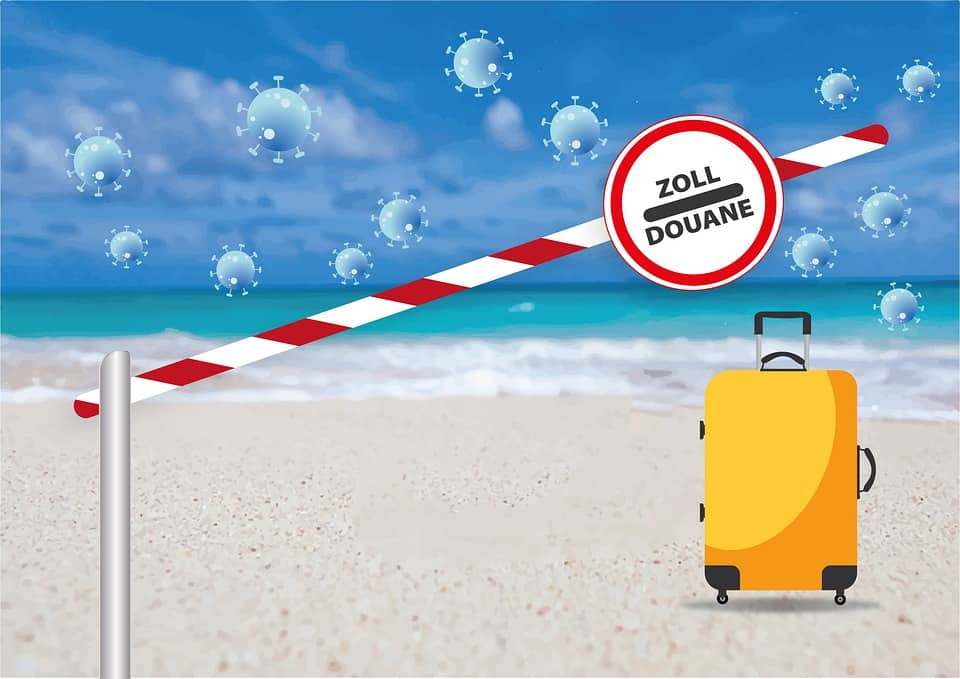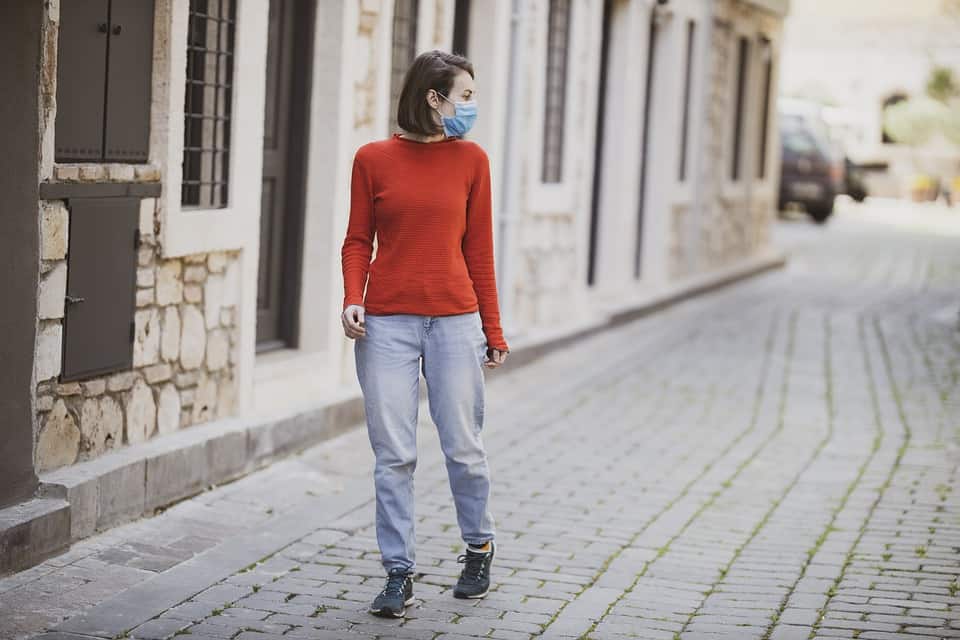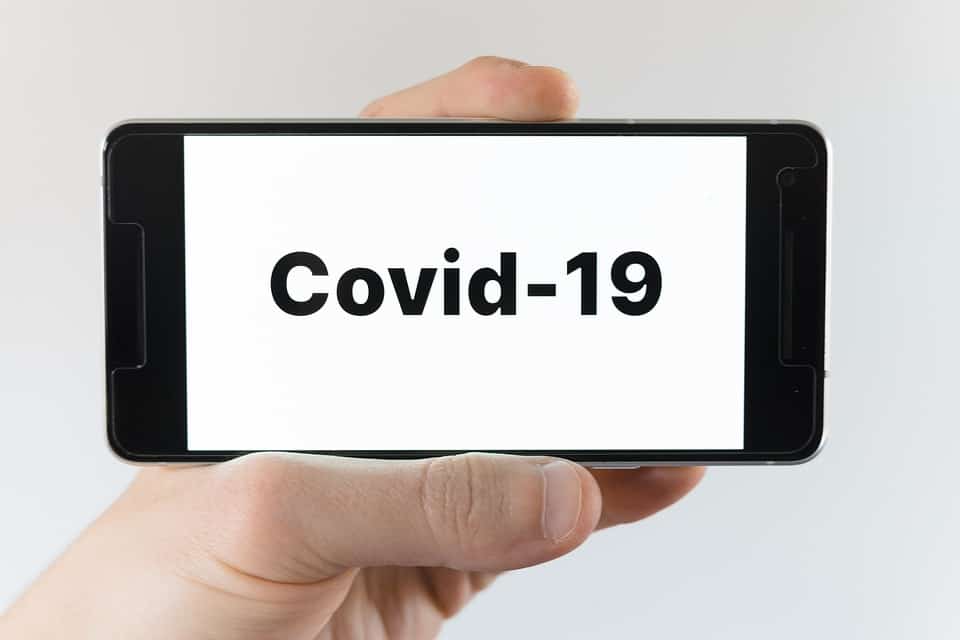Covid-19 and travel: Ten important safety tips during and after this pandemic ends

(Editor’s note: Covid-19 isn’t going away soon and even when it does, you should be careful while traveling. My guest blogger, Emma Willson, has written 10 important tips on how to be cautious in this coronavirus world. Emma is a Californian who has visited 16 countries in North America, South America and Europe and has been a freelance writer for four years.)
By Emma Willson
The travel industry is one of the worst-hit by the coronavirus. Many governments have banned travel and set up various restrictions as measures to curb the spread of the disease. Stay at home, and, whenever you want to travel, consider general recommendations for personal hygiene and keeping a one-meter social distance from others in public.
For your safety, while traveling, follow these 10 tips to stay safe, whether during or after COVID-19.
1. Test yourself
Getting tested for COVID-19 is the only way to be sure that you are not a carrier. Any mild signs of the illness will hinder you from traveling from one location to another. Conducting a test will give you a report that you can use to gain passage for traveling both locally and internationally.
Besides that, you cannot be allowed to travel while waiting for the test results. After undergoing the COVID-19 test, you need to have all the medical documents to permit you to move. If you tested positive for COVID-19 and then recovered from the disease, you are not required to travel.
2. Medical history
While planning for your trip, get a medical history to avoid any hindrance from traveling to any location. If your past medical life proves that you had an illness associated with the virus, then you cannot travel. To help you get through the checks smoothly, get your medical history records for the previous two weeks ready as you proceed.
3. Prepare your travel history
Coming into contact with different people during your travel is one way you can contract the disease. You are at high risk if you traveled in the past 14 days from a place that is said to have the highest number of COVID-19 cases. Therefore, you will be required to present your travel history to be sure that you are not a carrier before traveling.
4. Carry necessary supplies
You need to ensure exceptional hygiene by carrying the necessary items. Carry hand sanitizers and alcohol wipes, and wear a pair of gloves. Carry a bunch of toothpicks that you will use to push ATM buttons or elevators. Carry a polythene bag to place your documents and devices when going through security checks.
After shopping, carry your items home on the car roof rack to avoid contamination. Sanitize everything before you use it or take it into your room. If you have to buy food outside, ensure it is packed and cook it before consuming it.
5. Practice frequent good hand hygiene
Often, wash your hands with running water and soap for at least 20 seconds, especially after coming into contact with respiratory secretions. Washing your hands with soap is preferable for visibly soiled hands. Alternatively, if your hands are invisibly soiled, use a 60-percent alcohol-based hand rub to clean them.
Avoid touching the entire face with unclean hands because that is the easiest way to transmit the virus. Do not touch open surfaces such as elevators, escalators, subways and sitting areas. Use a sanitizer regularly when not wearing hand gloves. Never pass hand sanitizer bottles to others because they may get contaminated.
6. Always wear your face mask
Use a face mask while traveling by public means. A face mask will protect you from secretions from an infected person. Following the best practices for wearing, removing and disposing of the face masks is critical and hand hygiene after removal.
While removing the face mask, hold the elastic bands and do not touch the pleated front. Face masks cannot prevent you from contracting the disease without proper hand washing. You will need to observe both.
7. Proper food hygiene practices
As you travel, follow five practices of proper food hygiene. You will need to keep the food clean. Separate cooked food from the raw and thoroughly cook it before consumption. Keep food safe at optimal temperatures.
Use clean water for washing and cooking your food. Carry your cutlery and sterilize them before use and reusable water bottles instead of sharing utensils with others. Wipe trays, food containers and other surfaces before placing your food.
8. Boost your immune system
Always stay hydrated by taking 8-10 glasses of water daily. You can also use citrus juice and coconut water to help reduce the heat. It lowers the chances of flu and other respiratory illnesses. Individuals with pre-existing diseases like diabetes and blood pressure are less likely to have a stronger immune system. Consume a lot of vegetables and fruits and foods rich in proteins.
Have adequate sleep before traveling. Less sleep can directly impact the functioning of other parts of the body, thus affecting your immunity. Exercise to help improve metabolism to boost your immunity. Avoid smoking as this is likely to affect your respiratory system, making you vulnerable to contracting the disease.
9. Entry and exit points screening
Screening for temperature levels at the exit and entry levels is crucial. Infected individuals may still be in the incubation period or might have used antipyretics to suppress the fever. At the entry points, carry out a proper risk assessment and contact tracing.
You should monitor yourself for 14 days in quarantine and follow the national health protocols of the receiving country. In case of any symptoms, contact your local health providers and inform them of your travel history and contacts.
10. Research
Search for any information regarding the precautions with the means of travel you would like to use before leaving home. Destination websites and tour guides are preferably the best avenues to get up-to-date information. You should also follow the given guidelines when visiting various places to reduce the chances of contracting the virus.
Conclusion
While traveling, follow these tips and see that you do not violate any of the laid-down safety precautions. Seek medical attention when you feel unwell and remember to observe social distancing when in public. You can be a threat to others when you do not show any symptoms.




July 31, 2020 @ 11:32 am
John, always enjoy your posts. These are great suggestions from Emma Wilson. Hope you can read the attached from the Washington Post.
https://www.washingtonpost.com/world/europe/coronavirus-italy-rome-masks-lamaska/2020/07/26/36a5b184-cb6d-11ea-99b0-8426e26d203b_story.html